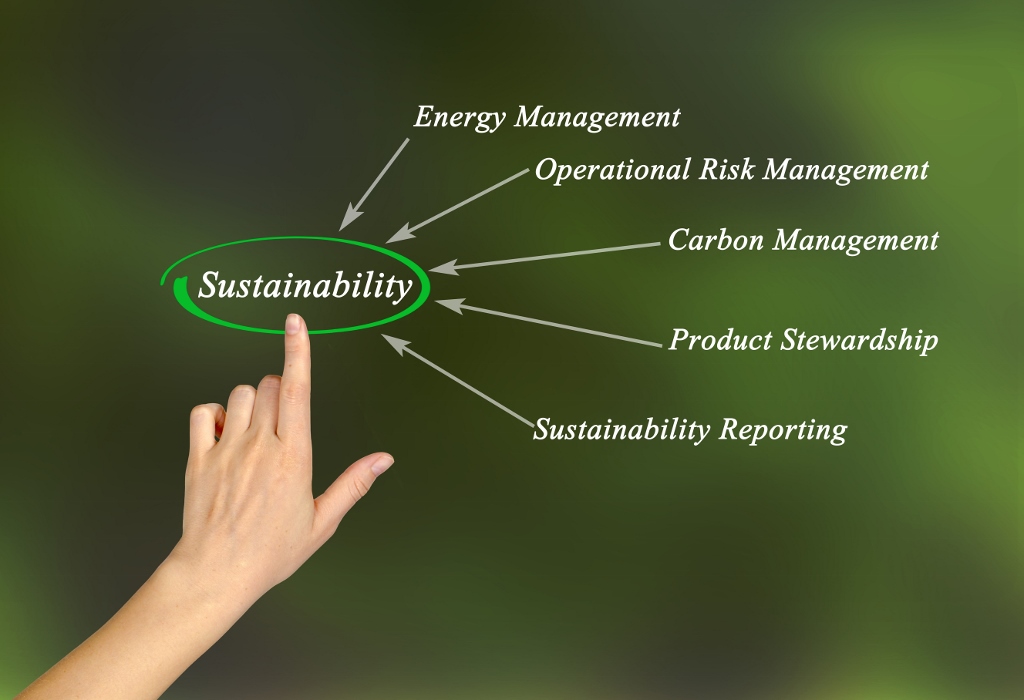Corporate Sustainability Reporting
Good for the environment and good for business.

Corporate sustainability reporting is the practice of measuring and publicly disclosing a company’s sustainability information. This information reports on how companies use and affect financial and natural resources and allows them to understand and communicate their economic, environmental and even social and governance performance. Using this information, organizations can set goals for improved sustainability performance and reduced impacts, implementing and managing effective changes.
“The Solution 105 model for corporate sustainability reporting tracks how much energy is being used in a facility as well as the amount of waste or recycling that has been done. We use that information to associate a carbon output for that energy usage,” said Chris Vilcsak, President and CEO of Solution 105.
By tracking utility usage and determining a company’s carbon impact, companies can develop a plan for reducing that impact. Corporate sustainability reporting allows companies to be transparent with the public, their clients and stakeholders by making public their commitment to environmental sustainability and responsibility.
“The goal is to reduce your carbon usage and potentially find other sources for energy,” shared Vilcsak. “You might actually end up using more energy by switching to other sources, but if you’re investing in green power than your carbon emissions will be much lower. For example, if you substituted just a quarter of your energy use to green power than you will end up with a reduced carbon footprint.”
Not only does corporate sustainability reporting benefit the environment, it is good for business. Businesses that serve a large range of clientele including shopping malls, large commercial or industrial facilities, office buildings or medical centres will be able to show attract high quality tenants who are only interested in doing business in an environmentally responsible building.
“A lot of business and organizations, like the Government of Alberta for example, won’t go into a building as a tenant unless it’s LEED or BOMA certified,” said Vilcsak. “More than that, it’s a good business practice to show your stakeholders, shareholders or investors that you’re taking sustainability into account.”
In some industries, it is actually an industry mandate that corporate sustainability report information be publically exposed. For example, sustainability reporting is a requirement for the Canadian insurance industry. Most insurance companies will make public an accountability statement each year that reports on the economic, environmental and social dimensions of their products and services. Sustainability reporting allows them to gauge energy use and environmental impact and adjust their policies to reduce impact.
“It makes a lot of sense for businesses who might be impacted negatively by climate change. For insurance companies as an example, it benefits them to be an active part of the solution,” commented Vilcsak.
Vilcsak also commented that for some industries, being proactive with corporate sustainability reporting can show the government that companies are taking sustainability serious, possibly preventing forced regulation on reporting. If these companies can show that they are already reporting and are making targets for reduced carbon emissions on their own, then the government might not deem official regulations necessary.
“Corporate sustainability reporting can also help companies save money. Depending on how they choose to reduce their impact they can save on utilities; but with jurisdictions starting to put a price or penalty on carbon impact, businesses can use the reporting information to decrease carbon emissions and save on that carbon tax or penalty fee,” said Vilcsak.
For more information on how Solution 105 can help your company get started with corporate sustainability reporting, call (780) 429-4774 or contact us online.